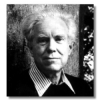Elliott Carter

Elliott Carter
Elliott Cook Carter, Jr.was an American composer who was twice awarded the Pulitzer Prize. He studied with Nadia Boulanger in Paris in the 1930s, then returned to the United States. After an early neoclassical phase, his style shifted to an emphasis on atonality and rhythmic complexity. His compositions are known and performed throughout the world; they include orchestral, chamber music, solo instrumental, and vocal works...
NationalityAmerican
ProfessionComposer
Date of Birth11 December 1908
CountryUnited States of America
Even I wrote it when I first started to compose after I left Paris. I wrote pieces that were comparatively accessible and easy to understand.
Well I tried to, but I could never write anything that I liked or was worthwhile. I threw it all out and realized that I had to make a serious study- that my tastes were far more advanced than my abilities.
I've known those pieces ever since I was about 16 or 17; I also at that time was taken to meet Charles Ives whom I got to know fairly well. He was the one who wrote a recommendation for me to get into college.
I mean the public likes it more in Europe than they do here because the state supported organizations have felt that playing contemporary music was part of the education of the public.
These wealthy people were very interested in contemporary music. They wanted to help diffuse it and get it to be known to other people.
It was only later on that I became more interested in older music.
In any case, Ives encouraged me to go into music even though he himself had such a hard time being a composer.
An auditory scenario for the players to act out with their instruments.
Then, when the Depression came, all of this changed completely. Since that time, the entire public is of a very different sort and there was not so much support for contemporary music in a direct way.
The Royal Festival Hall, I don't know whether it was 80 or 70, gave a whole festival of my music there with orchestra and everything. String quartets.
When I was in Paris, all of the German refugees began to flow in and it was a very sad time.
Since I'm allergic to various things, the army wouldn't accept me during the war, and I got into the Office of War Information, which sent music to Europe.
Why write for the orchestra? For one thing it's a very challenging problem.
Well when I was young, when I was very young, when I was a little boy I don't remember the music I heard, but there was an article in the Brooklyn Daily written by my Aunt about how I could choose phonograph records.